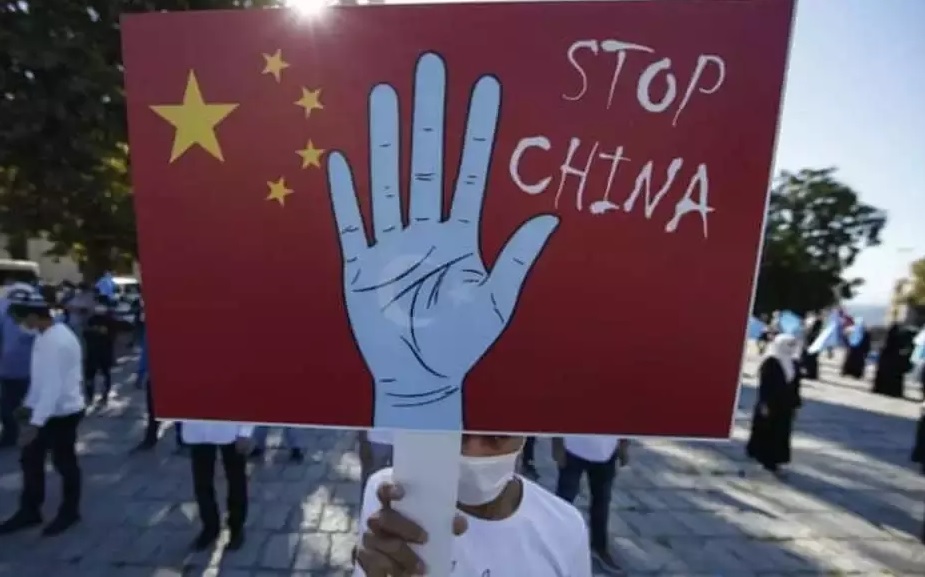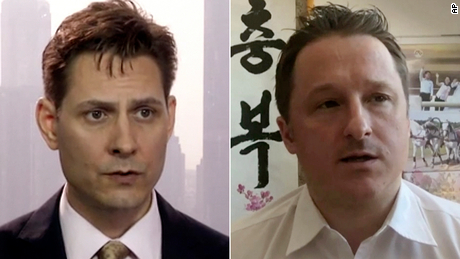
In a tit-for-tat move the US, UK, Canada, EU and China have sanctioned each others officials over the persecution of Muslim minorities in Xinjiang.
On March 22, US, UK, Canada, and EU announced sanctions on Chinese officials who are connected to the human rights abuses in Xinjiang. Not to be taken lightly, China quickly retaliated with sanctions of its own against EU officials and organisations.
The U.S. Department of Treasury’s Office of Foreign Assets Control (OFAC) placed sanctions on Chen Mingguo, Director of the Xinjiang Public Security Bureau, and Wang Junzheng, secretary of the Party Committee of the Xinjiang Public Security Bureau, for their involvement in the persecution of Muslim minorities in Xinjiang. The UK, Canada, and the EU slapped sanctions on these and two other top Chinese Communist Party (CCP) officials, as well as on the Xinjiang Production and Construction Corps. The quasi-military Corps is accused of using forced labor for its cotton production in the territory.
British Foreign Secretary Dominic Raab announcing the sanctions stated “The evidence of widespread human rights abuses in Xinjiang cannot be ignored — including mass detention and surveillance, reports of torture and forced sterilization”, adding that the U.K. and its allies have mounted a coordinated response to hold the perpetrators responsible.
China on the same day retaliated with its own set of sanctions. The Chinese Ministry of Foreign Affairs announced sanctions on 10 EU officials and four organisations for “severely harming China’s sovereignty and maliciously spread lies and disinformation.”
The individuals include seven politicians: five members of European Parliament and legislators from the Netherlands, Belgium, and Lithuania. Two scholars were also named: Swedish National China Centre Director Bjorn Jerden and German anthropologist Adrian Zenz, who in 2019 published a widely cited report detailing the Xinjiang internment camps believed to house over a million Uyghurs and other Muslim minorities.
The four “entities” now subject to Chinese sanctions are the Political and Security Council of the EU, the Subcommittee on Human Rights of the European Parliament, and two think thanks: Germany’s Mercator Institute for China Studies and Denmark’s Alliance of Democracies Foundation.
The Chinese Foreign Ministry further chided the EU for “lecturing others on human rights and interfering in their internal affairs,” telling the bloc to “reflect on itself, face squarely the severity of its mistake and redress it.”
The tit-for-tat comes just days after the highly anticipated U.S.-China talks in Anchorage, Alaska, attended by American Secretary of State Antony Blinken and National Security Advisor Jake Sullivan and Chinese envoy Yang Jiechi and State Councilor Wang Yi. The meeting turned undiplomatic with both sides airing list of grievances in front of cameras and attempting to outdo each other with a war of words.
The latest round of sanctions is seen as the lowest point in relations between the West and China in decades.
China’s ‘Hostage Diplomacy’

The latest escalation in tensions between China and the West comes on the heels of the trials of two Canadians, former diplomat Michael Kovrig and businessman Michael Spavor by China. The trials were conducted in secret last week.
The arrest and trial of the two Canadian diplomats is seen as China’s retaliation for Canada’s arrest of Huawei’s CFO Meng Wanzhou and the daughter of the Chinese telecom giant’s founder on a US warrant for allegedly violating sanctions against Iran.
The two Canadians were arrested in 2018 for allegedly ‘endangering’ national security and in 2020 were charged with espionage charges. Canada, US and other western allies have accused Beijing of practicing “hostage diplomacy.”
